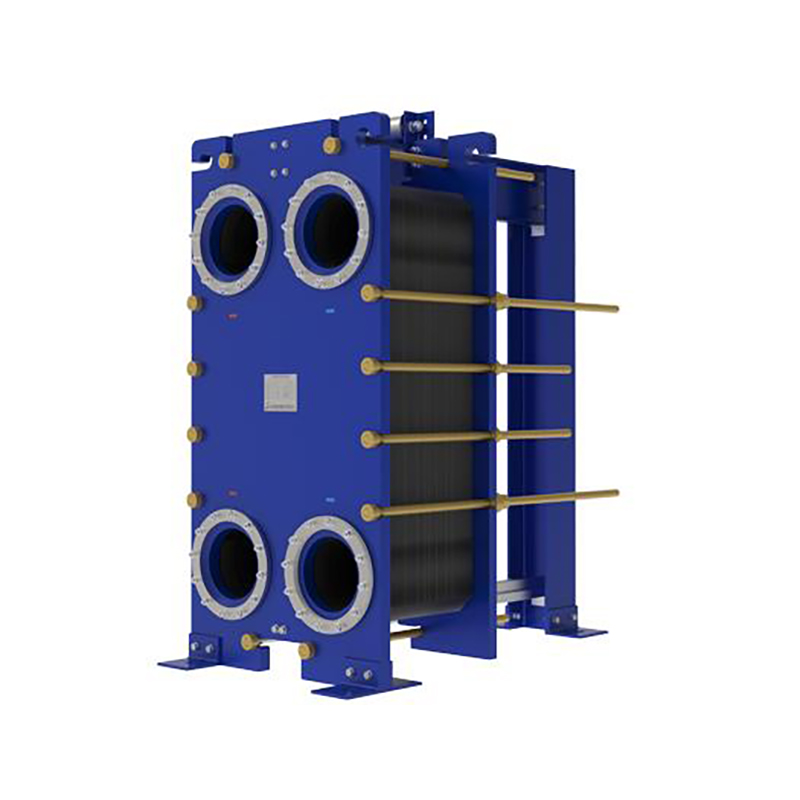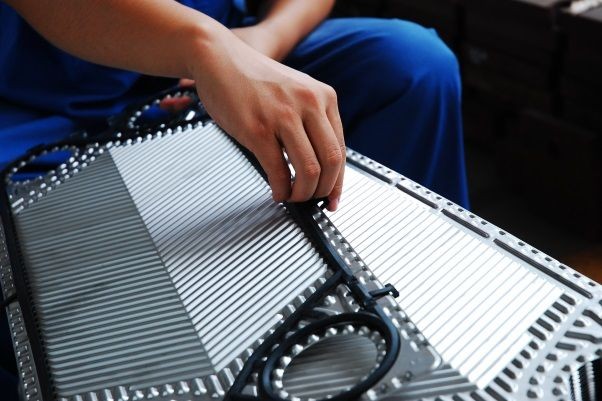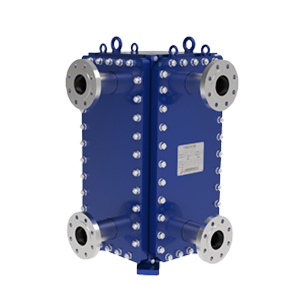5 key roles of plate heat exchanger gaskets.
Plate heat exchanger gaskets perform 5 key roles: ...
More
Geothermal exchange, or ground source heat exchange, utilizes the earth’s stable subsurface temperature to provide highly efficient space heating, cooling, and hot water. The core principle is based on the fact that just a few feet below the surface, the ground maintains a nearly constant temperature, typically between 45°F and 75°F (7°C and 24°C) depending on latitude, throughout the year. This thermal stability is harnessed through a closed-loop or open-loop system of pipes, known as a ground heat exchanger, buried underground. A water or antifreeze solution circulates through these pipes, absorbing the earth's thermal energy in the winter and rejecting excess heat from a building back into the ground during the summer. This fluid then passes through a geothermal heat pump located inside the building. The heat pump, which is the central mechanical component, uses a refrigeration cycle to concentrate this low-grade thermal energy. In heating mode, it extracts the heat from the fluid and transfers it at a higher temperature to the building's air or hydronic distribution system. In cooling mode, the process is reversed; the pump extracts heat from the indoor air and transfers it to the fluid, which then dissipates it into the cooler earth. This process is remarkably efficient because the heat pump is moving heat rather than creating it by burning fuel, leveraging the consistent ground temperature as either a heat source or a heat sink, which requires significantly less electrical energy than conventional HVAC systems. The efficiency is quantified by the Coefficient of Performance (COP) for heating and the Energy Efficiency Ratio (EER) for cooling, with modern geothermal heat pumps often achieving COPs of 4.0 or higher, meaning they provide four units of heat for every unit of electricity consumed.
The decision to install a geothermal exchange system is driven by compelling long-term economic, environmental, and performance benefits that outperform traditional fossil fuel and air-source systems. Economically, while the upfront installation cost is higher, often ranging from $20,000 to $30,000 for a residential system according to industry data, the operational savings are substantial. Homeowners typically see a reduction of 30% to 70% in heating costs and 20% to 50% in cooling costs compared to conventional systems. This leads to a payback period generally estimated between 5 to 10 years, after which the owner benefits from drastically lower utility bills for the system's lifespan, which can exceed 25 years for the indoor components and over 50 years for the underground loop. Environmentally, geothermal systems are unmatched in their sustainability. They emit no on-site greenhouse gases and have a drastically lower carbon footprint than even high-efficiency natural gas furnaces, especially when paired with renewable electricity. The U.S. Environmental Protection Agency (EPA) has consistently stated that geothermal systems are among the most energy-efficient and environmentally clean heating and cooling technologies available. From a performance perspective, they provide exceptional comfort with even, draft-free heating and cooling and superior humidity control. They are also incredibly reliable, have fewer moving parts exposed to the elements, operate very quietly, and require less maintenance than conventional air conditioners or furnaces. Furthermore, they often increase property value and are eligible for significant federal tax credits, such as the 30% Residential Clean Energy Credit in the United States, and various local utility rebates, which directly offset the initial investment and accelerate the return.
Select the most popular foreign trade service products to meet your diverse needs
Learn more about the dynamics and professional knowledge of the foreign trade industry

Plate heat exchanger gaskets perform 5 key roles: ...
More
A gasket in heat exchanger seals surfaces, blocks ...
More
API 662 defines standards for plate heat exchanger...
More
Compare top frame plate heat exchanger models for ...
More
User reviews show the american standard heat excha...
More
You can see clear differences between welded block...
MoreSelect the most popular foreign trade service products to meet your diverse needs
Explore more content related to foreign trade services

User Comments
Service Experience Sharing from Real Customers
Sarah Chen
Sustainability ManagerThe geothermal exchange system has drastically reduced our building's carbon footprint and energy costs. The installation was professional and the long-term savings are incredible. A cornerstone of our sustainability strategy.
David Miller
HomeownerInvesting in a geothermal exchange system was the best decision for our new home build. Our heating and cooling bills are a fraction of what they used to be, and the temperature in the house is perfectly consistent year-round. Highly recommend.
James Wilson
Facilities DirectorWe installed this geothermal exchange system to heat and cool our school. The efficiency is remarkable, and the students are more comfortable in their classrooms. The initial investment is significant, but the operational savings make it worthwhile.
Lisa Rodriguez
Vineyard OwnerUsing geothermal exchange to control the temperature in our wine cellars has been a game-changer. It provides the ideal, stable environment for aging our wines without the huge energy bill we expected. Exceptionally efficient and reliable.